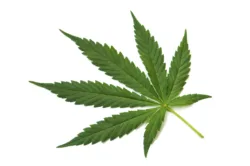
The conversation around marijuana is no longer black and white.
In some states, marijuana is promoted as a borderline-miraculous plant in terms of its healing qualities, while other states continue to pump out negative statistics surrounding marijuana use.
While some people preach the potential dangers of marijuana and warn of its ability to act as a gateway drug, others fight equally as hard to de-villainize it and prove its benefits.
As marijuana use continues to rise in the States, both legally and illegally, recreationally and medicinally, it’s important to remain aware of its effects on the individual and society as a whole.
Marijuana has long been suspected to have been used by humans for thousands of years, but we’ve only recently begun to study the long-term effects of the plant, both on the physical body and our modern society.
In this article, we’re going to take a closer look at marijuana use, specifically in the sense of if marijuana should be more commonly considered a potential gateway drug.
What is a gateway drug?
“Gateway drug” is a term used to describe a common substance that’s believed to act as a gateway, a stepping stone, to more dangerous and addictive drugs, like heroin or meth.
Because substance use is not a simple cause-and-effect occurrence, the concept of gateway drugs — usually considered to be alcohol, tobacco and marijuana — has become heavily debated among those in the medical field.
Before answering the question of whether or not marijuana is a gateway drug, we must first address the question that sits at the core of that one: is marijuana addictive?
Is marijuana addictive?
Marijuana doesn’t contain an organic, innately addictive compound like tobacco does, so it’s not possible to become chemically addicted to marijuana like you can with cigarettes.
It is, however, possible to become psychologically dependent on the plant as a result of how marijuana use affects our relationship to dopamine. Dopamine is a natural chemical that’s produced in the brain and is most commonly associated with pleasure.
We promote and strengthen our dopamine levels whenever we eat healthy, exercise, get enough sleep or spend time in the sunshine. In appropriate doses, marijuana can help to boost our natural production of this chemical.
However, too much marijuana offsets our natural production of dopamine, and this is when individuals find themselves unable to enjoy food, social activities and other hobbies without getting high first. That is where the development of a psychological dependence to marijuana takes shape.
While a psychological dependence is not technically the same thing as addiction, it does often manifest through similar signs and symptoms.
Is marijuana a gateway drug?
The short answer is, it can be.
Substance abuse and addiction are complex issues that are rarely isolated in their root causes. In nearly every situation, there are multiple areas of a person’s life that contributed to the development of a substance use disorder, not just a single event, exposure or incident.
What leads to a person’s initial drug use can vary greatly from what leads to their subsequent drug use. Additionally, their mental health, relationships, home environment and more can also drastically change, leading to new and sometimes worse influences in their lives that contribute to the using of more dangerous drugs.
Receive personal support today
If you or someone you know is struggling with a physical or psychological dependence to marijuana, send us a confidential message today and we’ll walk you through what you can do next to help yourself or them.
Rehab After Work is a premier outpatient treatment center that specializes in providing both intensive outpatient programs and partial hospitalization programs to adults struggling with substance use and addiction.
Having supported countless individuals on their road to recovery, we know that no two people are alike, and that addiction is a complex and multifaceted issue that requires a whole-person response. We work closely with you from day one to create a comprehensive treatment plan designed specifically for you, that will help you instill long-lasting, positive change in your life.
Send us a message or give us a call to speak with one of our qualified team members and start (or restart) your healing journey today.





